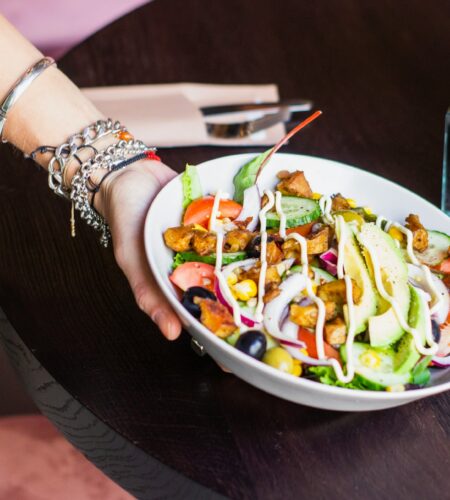Moving to a new country brings excitement, adventure, and countless discoveries. Among the most thrilling aspects of relocation is exploring local cuisine and food culture.
However, maintaining nutritious eating habits while navigating unfamiliar grocery stores, deciphering foreign food labels, and adjusting to different meal schedules can feel overwhelming.
Whether you’re an expat settling into your new home or a long-term traveler, prioritizing your health doesn’t mean sacrificing culinary adventures.
With the right strategies, you can embrace local flavors while ensuring your body gets the nutrients it needs to thrive in your new environment.
This guide will help you master healthy travel eating habits, discover nutritious local options, and create sustainable routines that support both your well-being and your cultural exploration.
Smart Shopping Strategies for Unfamiliar Markets
Learn Local Produce Seasonality
Understanding what fruits and vegetables are in season helps you find the freshest, most affordable options.
Local produce markets often offer the best quality ingredients at competitive prices. Start by visiting these markets weekly to familiarize yourself with seasonal offerings and build relationships with vendors who can recommend the best selections.
Master Food Label Basics
Even if you don’t speak the local language fluently, learning key nutritional terms helps you make informed choices.
Focus on recognizing words for sugar, salt, fiber, and protein. Many countries require nutritional information in standardized formats, making comparison shopping easier once you understand the layout.
Stock Your Pantry Wisely
Building a foundation of versatile, nutritious staples ensures you always have healthy options available.
Focus on whole grains, legumes, nuts, seeds, and shelf-stable proteins that work across various cooking styles. These ingredients often translate well between different cuisines and provide consistent nutrition.
Building Balanced Meals with Local Ingredients
Embrace Regional Superfoods
Every region has nutrient-dense foods that locals have relied on for generations. Research traditional ingredients known for their health benefits and experiment with incorporating them into familiar dishes. This approach allows you to gain nutrition for expats while honoring local food culture.
Adapt Familiar Recipes
Transform your go-to healthy recipes using local ingredients. This strategy helps maintain dietary consistency while encouraging culinary creativity. Start with simple substitutions before attempting more complex adaptations, allowing your palate time to adjust.
Practice Portion Awareness
Different cultures have varying approaches to meal timing and portion sizes. Pay attention to local eating patterns and adjust accordingly.
Some countries emphasize larger midday meals with lighter dinners, while others focus on multiple smaller meals throughout the day.
Navigating Social Food Situations
Communicate Dietary Needs Respectfully
Learning to express dietary restrictions or preferences in the local language shows respect for both your hosts and their culture.
Research common phrases for allergies, vegetarianism, or other dietary requirements. Most people appreciate the effort and are willing to accommodate reasonable requests.
Find Balance in Food Exploration
Trying new dishes is part of the cultural experience, but you don’t need to abandon all nutritional awareness. Apply the 80/20 rule: make nutritious choices most of the time while allowing flexibility for special occasions and unique local experiences.
Connect with Like-Minded Communities
Join expat groups, cooking clubs, or health-focused communities in your new location. These connections provide valuable insights about where to find familiar ingredients, discover healthy local restaurants, and share adaptation strategies with others facing similar challenges.
Creating Sustainable Routines
Establish Regular Shopping Patterns
Develop a consistent grocery shopping routine that works with local store hours and your schedule. Many countries have different shopping patterns than you might be accustomed to, such as daily fresh purchases or specific market days for certain products.
Meal Prep with Local Flavors
Batch cooking remains effective regardless of location. Adapt your meal prep strategies to include local spices, cooking methods, and ingredients. This approach saves time while ensuring you always have nutritious options ready when hunger strikes.
Stay Hydrated Appropriately
Water quality and availability vary significantly between countries. Research local water safety and invest in appropriate filtration if needed. Don’t forget that climate changes may affect your hydration needs, requiring adjustments to your fluid intake.
Overcoming Common Challenges
Budget Considerations
Healthy eating abroad doesn’t have to break your budget. Focus on affordable local staples like seasonal vegetables, whole grains, and regional protein sources.
Avoid expensive imported “health foods” when local alternatives offer similar nutritional benefits at lower costs.
Time Management Solutions
Adjusting to new work schedules, commutes, and social obligations can disrupt eating patterns. Prepare quick, nutritious options that fit your new routine.
Consider cultural meal timing differences and plan accordingly to avoid getting overly hungry between meals.
Kitchen Equipment Adaptation
Your new living situation might include different appliances or cooking tools than you’re used to. Learn to work with available equipment and consider investing in a few versatile tools that enable healthy cooking regardless of kitchen limitations.
Making Health a Priority in Your New Life
Maintaining nutritious eating habits while embracing a new culture requires patience, flexibility, and planning.
Start with small, manageable changes rather than attempting to overhaul your entire approach immediately. Focus on incorporating one or two new healthy local ingredients each week while maintaining some familiar nutritional anchors.
Remember that healthy travel means finding sustainable practices that support your long-term well-being without isolating you from local food culture.
The goal is to create harmony between nutrition and cultural exploration, allowing you to thrive physically while fully embracing your new environment.
Take time this week to explore one local market, try one new nutrient-dense ingredient, and connect with one person who can share insights about eating well in your new country.
Small steps lead to lasting habits that will serve you throughout your international adventure.
Subscribe to our email newsletter to get the latest posts delivered right to your email.

